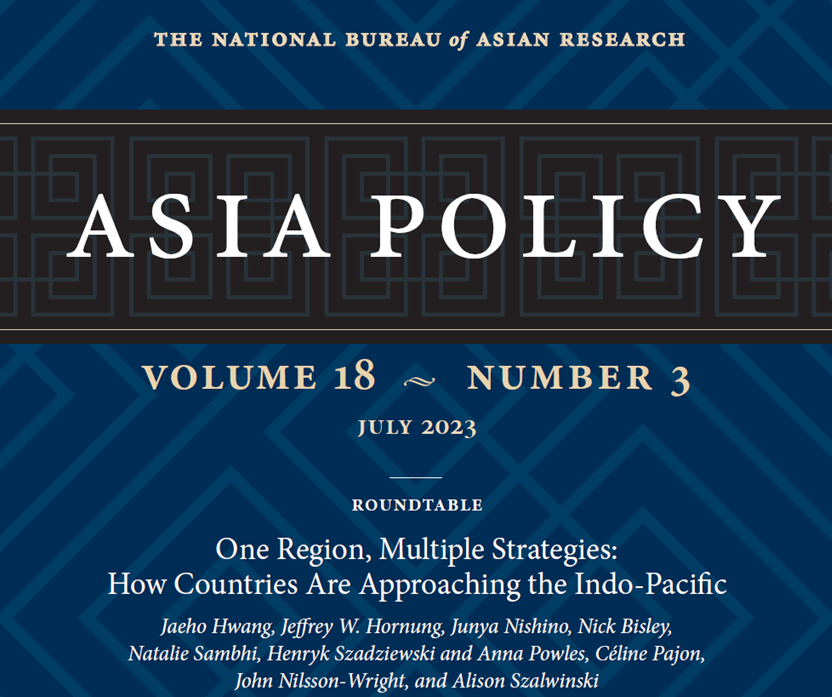France's IndoPacific Strategy: From a Balancing Power to a Constructive Stakeholder
France was the first European country to announce an Indo-Pacific strategy, launching it in 2018.

France is a resident power in the region, as it maintains territories in both the Indian Ocean (the islands of Mayotte and Réunion, the Scattered Islands, and the French Southern and Antarctic Territories) and the Pacific Ocean (New Caledonia, Wallis and Futuna, French Polynesia, and Clipperton Island), with 1.5 million citizens living in these territories and in other regional countries, and more than 90% of its large exclusive economic zone (9 million square kilometers) located in the two oceans. To take care of this vast area, France maintains a military presence of 8,000 personnel in the region. Its original position derives from the country’s sovereign interests in the Indo-Pacific and aims to propose a way out of the U.S.-China rivalry through an inclusive and multilateral approach to regional affairs that also maintains the rules-based order.
Since 2021, the French approach of “strategic autonomy” has been challenged by several developments, specifically by the AUKUS defense pact between Australia, the United Kingdom, and the United States but also more broadly by growing Chinese assertiveness, the ideological turn of the Sino-U.S. rivalry, and the implications of the war in Ukraine. However, as geopolitical polarization grows and international security worsens, the feasibility and sustainability of an Indo-Pacific strategy in which France acts as a “balancing power”—a puissance d’équilibre(s)—are seriously called into question. There is indeed a significant gap between the political rhetoric of French priority and ambition for the Indo-Pacific and the reality of the resources it has committed to the region. Against this background, this essay argues that France should recalibrate its Indo-Pacific posture away from being a balancing power and toward that of a pragmatic and constructive regional stakeholder.
This essay begins by examining the motivations for France’s Indo-Pacific Strategy, which include both protecting French interests in the face of Chinese expansion and the Sino-U.S. rivalry and, under Emmanuel Macron’s leadership, restoring France’s global influence and status in the future world order. The following section looks at this strategy itself and what it includes. The essay next addresses the challenges France’s strategy faces in a worsening geopolitical context. It then makes the argument that Paris should adopt a more modest and realistic stakeholder posture in the Indo-Pacific, before drawing together some concluding points.
- Read the full article on the website of Asia Policy.

Available in:
Regions and themes
Share
Related centers and programs
Discover our other research centers and programsFind out more
Discover all our analyses
RAMSES 2024. A World to Be Remade
For its 42nd edition, RAMSES 2024 identifies three major challenges for 2024.
France and the Philippines should anchor their maritime partnership
With shared interests in promoting international law and sustainable development, France and the Philippines should strengthen their maritime cooperation in the Indo-Pacific. Through bilateral agreements, expanded joint exercises and the exchange of best practices, both nations can enhance maritime domain awareness, counter security threats and develop blue economy initiatives. This deeper collaboration would reinforce stability and environmental stewardship across the region.

The China-led AIIB, a geopolitical tool?
The establishment of the Asian Infrastructure Investment Bank (AIIB) in 2016, on a Chinese initiative, constituted an attempt to bridge the gap in infrastructure financing in Asia. However, it was also perceived in the West as a potential vehicle for China’s geostrategic agendas, fueling the suspicion that the institution might compete rather than align with existing multilateral development banks (MDBs) and impose its own standards.
Jammu and Kashmir in the Aftermath of August 2019
The abrogation of Article 370, which granted special status to the state of Jammu and Kashmir (J&K), has been on the agenda of the Bharatiya Janata Party (BJP) for many decades.







